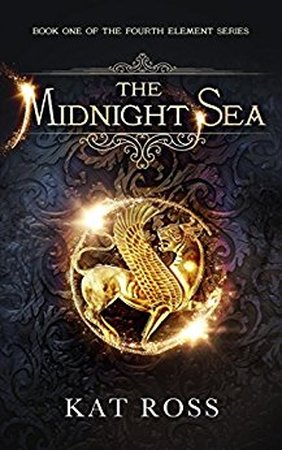 “The Midnight Sea” is a thrilling historical fiction meets wild fantasy. Yes, historical fiction! The author was inspired and drew heavily from the time just before the man who would be known as Alexander The Great conquered much of the Middle East. Ross draws on old stories that mention these supernatural and magical beings (think genies, but without the fancy bottle) and how they started off as beings of good, before being turned evil. Ross uses these long forgotten historical aspects of religion, and the regions they are based in, to create much of her world and the beliefs the characters follow, for her. She embellishes the magical aspects, certainly, but the premises was already laid out for her, which I personally enjoyed for it made the book feel grounded, though I know a lot of people find that to be lazy. But why? Our world has so many wonderful and half-forgotten stories that I think it’s important for authors to find ways to bring those stories back to the present. So, well done, Ms. Ross! I thought the idea of using these magical beings, the daevas, to fight even worse creatures (that come straight out of D&D lore, like liches) was interesting, but was made even more compelling by the idea that these magical beings are slaves to the humans, bonded to one person who decides when and where they can use their powers, and how much of their power they can use at any one time. I liked that the bonded process made it so daeva and human felt each other’s emotions, so even though they have a tumultuous master and slave standing, they are so intimately tied together that they constantly struggle with reminding themselves that the daevas are “evil” but have been brought up “in the light” and are therefore trying to reconcile their evil ways by fighting and killing their even nastier cousins. While I did not care much for the main character, she always felt a bit flat to me, the most realistic thing about her was the conflict of faith she has when she starts learning unsettling facts about their Gods and the Prophet, and how the bonding process truly came to be. Nazafareen did not feel like a complete person until that conflict of faith was introduced, and when she starts seeing her daeva, Darius, as something new, not aligned to the evil creatures they fight as is her duty to the empire. It was a little disappointing that I didn’t like her more considering what she goes through and her ever evolving quest, that seems to update each time she talks to someone older (and smarter) than she is, but I didn’t actively dislike her, either. Despite her power and her skill with a blade, she just never felt like a strong character to me. That being said, while I was reading the book, I vastly enjoyed it, and there were times where I read well past my bed time because I wanted to find out what would happen next. When an author can do that, it’s amazing and I applaud them for that! But I finished the book a few days ago, and as time has passed, the joy of the storytelling has not stuck with me. It’s a fun ride while you’re in it, but once you’re off, it’s not one of those books that’s going to stick with you forever. Which is fine, there’s nothing wrong with that, but it makes me struggle a bit to recapture that initial allure I felt reading while writing the review. I definitely will be reading the rest of this interesting and exciting trilogy, but because the main character didn’t feel solid and a few days later the book quickly loses the magic that once so aptly held my attention, I’m giving this book 4 stars, but definitely encourage anyone who likes a little history with their fantasy to give this series a read!
0 Comments
Leave a Reply. |
Click the book images to see them on Amazon!
Categories
All
|






 RSS Feed
RSS Feed



















